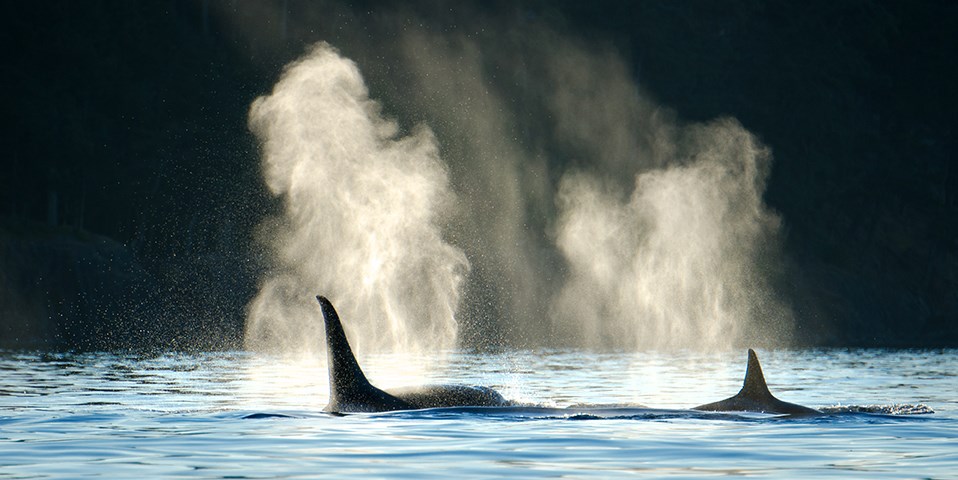With all the news swimming by on the sea of our social media feeds, it is likely many marine lovers in Squamish missed this news, but it should be on our radar.
The 72 remaining southern resident orcas, which make their way to Howe Sound, usually during the winter, face an increased threat from the U.S. Navy that 29 organizations are trying to mitigate.
They have penned a letter expressing their distress over the Navy’s plans to increase their ocean military testing from two “takes” to 51 per year in known killer whale habitat starting in November and lasting for seven years.
These tests, carried out from northern California to Alaska, aren’t new, but it is now known the military test zones overlap with the whale’s critical habitat, Deborah Giles, a research scientist at the University of Washington’s Center for Conservation Biology, told The Chief.
Giles also works with the non-profit Wild Orca, a signatory to the letter.
A “take” is an allowance to temporarily disrupt the whales.
Read the letter by Jennifer Thuncher
“That might look like the whales going from foraging to travelling or from resting to travelling,” Giles said.
“We are only talking about 72 individual animals, so that equates to 68% of the population that may be impacted minimally or up to a degree that is less than killing them in a year.”
That should concern everyone who loves to see these iconic animals in our waters.
“We are talking about a population of animals that is food-deprived... and so any time that a whale is disrupted from foraging, it has the potential to cause harm to this population,” added Giles.
The whales travel together and depend on each other.
“If these activities are happening anywhere in the vicinity of these whales trying to engage in these basic biological functions, it has the potential to have certainly short term impacts, but it may have long-term impacts, too.”
The signatories to the letter ask that the Navy lean more on already available sightings networks — such as Orca Network and the Pacific Whale Watch Association — that do near real-time monitoring of where these whales are so the Navy can avoid testing their weapons in areas where the whales at that time.
The Navy has said they have human observers, but Giles says that is not accurate enough.
The Navy could also invest in additional underwater monitors that would record the sounds of the ocean and thus determine precisely when the orcas are in the area.
The public comment period has ended for the Navy’s permits, now, the U.S. National Oceanic and Atmospheric Administration (NOAA) will review the permit request — and feedback like the letter — to decide if the Navy’s permit will proceed, as is.
At that point, there might be a way for the public to engage again.
“That is why it is important right now that people learn about it so that they are ready to roll when that time comes,” Giles said.
Just as we scan the waters off our shores for the majestic orca, it is worth keeping our Squamish eyes on this issue in the coming months.
Watch www.wildorca.org for updates.



